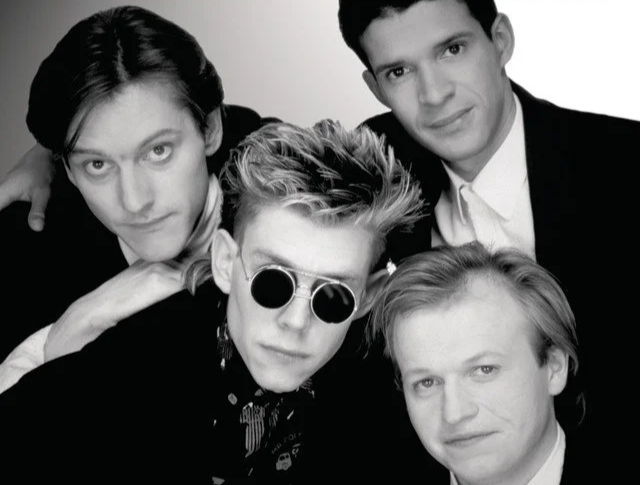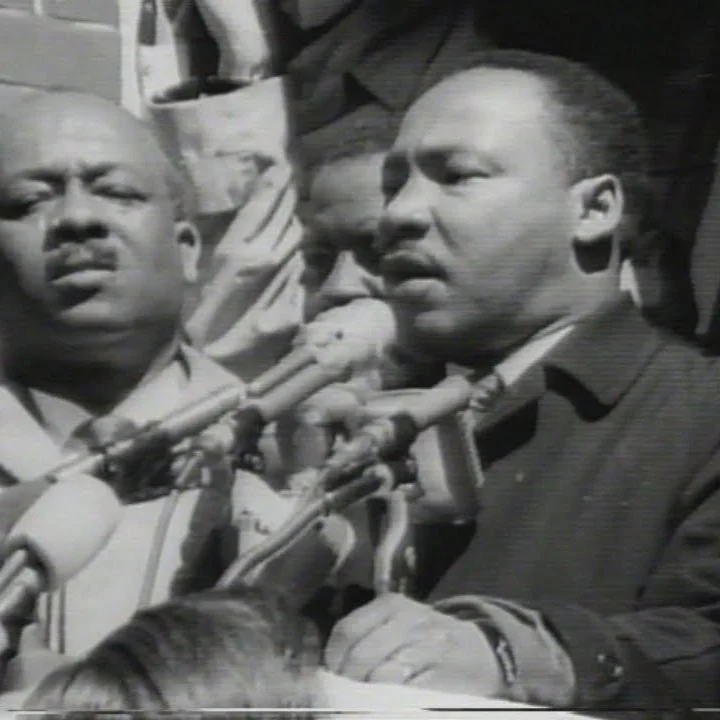Level 42 - Something About You
"Something About You" is a song by the British band Level 42, released in 1985 as part of their album "World Machine." Written by band members Mark King and Phil Gould, the track showcases the band's distinctive blend of jazz-funk and pop, featuring catchy melodies, intricate bass lines, and polished production.
The song's lyrics convey themes of romantic longing and introspection, focusing on the complexities of love and attraction. It became one of Level 42's most successful hits, reaching high positions on various international charts. In the U.S., it peaked at number 7 on the Billboard Hot 100, making it one of their most recognized songs in North America.
"Something About You" is notable for its unforgettable chorus and bass-driven groove, which became a hallmark of Level 42's sound. The band’s energetic performance and Mark King's distinctive vocals helped solidify the song’s place in 80s music.
Over the years, "Something About You" has been covered by several artists and remains a staple in Level 42's live performances, continuing to resonate with fans of the era. Its blend of upbeat rhythms and heartfelt lyrics has ensured that it remains a classic in the pop and funk genres.
Linda Ronstadt – Goodbye My Friend
“Goodbye My Friend” by Linda Ronstadt is a deeply emotional ballad that tenderly explores themes of loss, farewell, and acceptance. Written by Karla Bonoff, the song is featured on Ronstadt’s 1989 album Cry Like a Rainstorm, Howl Like the Wind. With its gentle melody and heartfelt lyrics, it reflects on the fragility of life and the sorrow of parting, while also offering a sense of peace through cherished memories. Ronstadt’s poignant vocals capture the ache of saying goodbye, making the song a comforting tribute to those we've lost—a timeless reminder of the enduring bond between friends, even in the face of goodbye.
Linkin Park – In The End
Released in 2001 as part of Linkin Park’s groundbreaking debut album Hybrid Theory, “In the End” quickly became one of the most recognizable rock songs of the early 2000s. Fusing rap-rock with emotional depth, the track stands out for its haunting piano melody, Chester Bennington’s soaring vocals, and Mike Shinoda’s introspective rap verses. Its central message — the feeling of putting effort into something only for it to fall apart — struck a chord with a generation grappling with disillusionment and emotional struggle.
“In the End” captures a sense of futility and vulnerability, themes rarely addressed so directly in mainstream rock at the time. Lyrics like “I tried so hard and got so far, but in the end, it doesn’t even matter” became anthemic for fans dealing with personal setbacks. The song’s genre-defying style helped redefine what alternative music could be, blending elements of hip-hop, rock, and electronic music in a way that appealed to a broad audience.
Over two decades later, “In the End” remains one of Linkin Park’s most enduring tracks. Its emotional honesty and raw sound continue to resonate, cementing its legacy as a timeless anthem of resilience and reflection.
Madonna - Like A Prayer
"Like A Prayer" is a song by Madonna, released in 1989 as the title track from her fourth studio album. The song explores themes of spirituality, love, and redemption, intertwining religious imagery with personal reflection. It marked a significant evolution in Madonna's musical style, incorporating elements of gospel and pop.
The song's music video, directed by Mary Lambert, featured controversial imagery, including religious symbols and themes of racial discrimination. This sparked significant debate and backlash from religious groups upon its release, but it also highlighted Madonna's willingness to push boundaries and challenge societal norms.
"Like A Prayer" became one of Madonna's most acclaimed works, both commercially and critically, and is often regarded as one of her signature songs. Its impact has endured over the years, influencing numerous artists and remaining relevant in popular culture. The song was a commercial success worldwide, and its powerful message continues to resonate with audiences today.
Martha & The Vandellas - Dancing in the Streets
"Dancing in the Streets" by Martha and the Vandellas, released in 1964, is one of the most iconic songs of the 1960s and a defining example of the Motown sound. Written by Marvin Gaye, William "Mickey" Stevenson, and Ivy Jo Hunter, the song blends soul, R&B, and pop to create an upbeat, infectious anthem of unity and celebration. Its lyrics, urging people from cities across the United States to come together and dance, became a symbol of joy and solidarity, resonating with the social and political movements of the time, particularly the Civil Rights Movement. Although the song is a fun and energetic call for togetherness, it also carried an underlying message of hope and change. "Dancing in the Streets" became a massive commercial success, reaching #2 on the Billboard Hot 100, and has since been covered by several artists, including David Bowie and Mick Jagger in 1985. The song remains a timeless classic, celebrated for its powerful message and enduring cultural impact.
Metallica - Enter Sandman
"Enter Sandman" by Metallica is a heavy metal anthem released in 1991 as the opening track of their self-titled album, commonly known as "The Black Album." The song is instantly recognizable for its ominous guitar riff, which builds tension before exploding into the powerful main riff. James Hetfield's aggressive vocals and Lars Ulrich's thunderous drumming drive the song forward with relentless energy. The track's combination of intense instrumentation and evocative lyrics has made it one of Metallica's signature songs and a staple of their live performances.
Michael Jackson - Man in the Mirror
"Man in the Mirror" by Michael Jackson is a powerful song that emphasizes personal responsibility and the importance of self-reflection in creating positive change in the world. In the lyrics, Jackson expresses the idea that in order to make the world a better place, one must start by examining and changing oneself. The metaphor of the "man in the mirror" represents the need to look inward and take accountability for one’s actions and attitudes. With emotional vocals and a gospel-inspired arrangement, the song delivers a message of hope, compassion, and transformation, encouraging listeners to not only recognize the struggles of others but also to act with empathy and purpose.


















